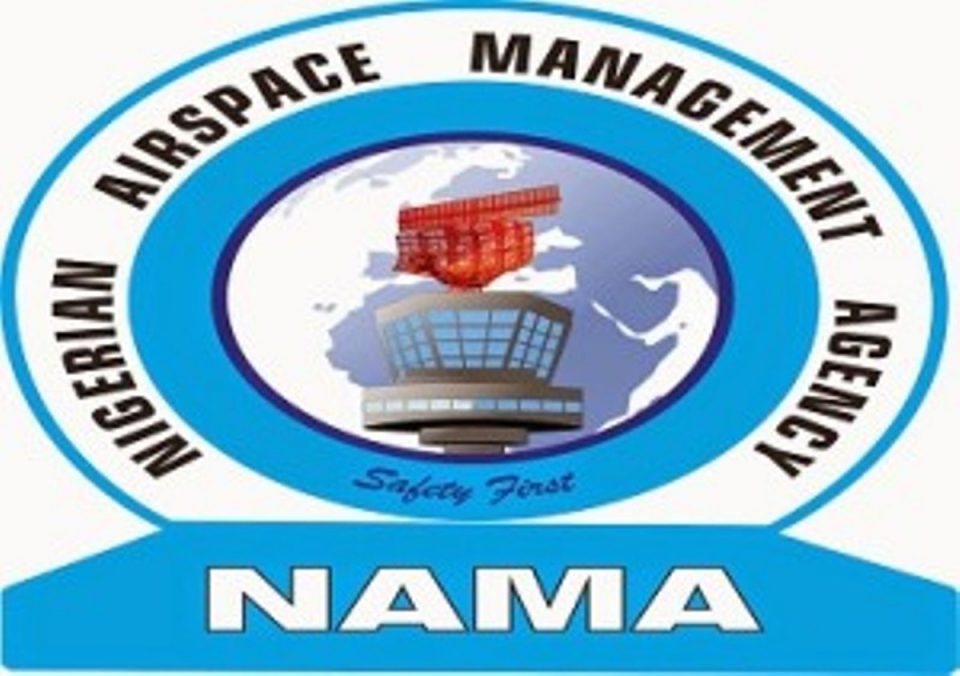Acting Managing director of the Nigerian Airspace Management Agency (NAMA), Mr. Matthew Lawrence Pwajok has said the agency does not intend to decommission the Instrument Landing Systems(ILS) as it plans to deploy the Satellite Based Augmentation System (SBAS) side by side as an upgraded redundancy.
This is just as he has said it would favour airlines and not cost them much to retrofit the signal receiver in their aircraft stating that if the equipment is installed and users unwilling it success becomes limited.
Pwajok made this known at the workshop on SBAS Implementation in Aviation in Africa which he described as a milestone for the nation and the continent that will change the dynamics of airspace management in the region bringing about efficient and effective use of the airspace.
He said the SBAS aids improved accuracy in approach and landing, improved accuracy in flying ( enroute), and improved accuracy in descent profile. It provides the capacity to give aircraft lateral guidance, vertical guidance either for approach and landing or takeoff and climb or for enroute flight.
For the airlines who may be apprehensive to migrate to the new system citing cost, the NAMA boss said that setting up the SBAS does not mean NAMA will be decommissioning the ILS systems that has taken years and billions of naira to install across the country however stressing that cost of procurement, installation, calibration maintenance, spares for the service provider is huge and cost recovery low.
He said, “Some airlines might decide to remain on using the normal system and they might be comfortable and it might be okay for them as long as it gives them assess to the airport for landing and takeoff. They are other airlines that might see this as being more cost effective and rather than having a diversion when something goes wrong, they will rather have a retrofit and install this.
” In some airports maybe we have issues with the ground landing instruments, that will not be enough for them to divert or wait, they can actually use an alternative satellite navigation system to be able to land. It is going to be at the discretion of airlines, we are not going to force any airline to have to fit it in. If you are comfortable with instrument landing equipment, we are going to deploy it and we do that as a requirement to have a backup for every service we provide.
“For us, it is not that we are going to decommission the instrument landing system, we want to provide alternatives for our airspace users knowing the technicality of the service that they provide. We won’t want to deny anybody access to an airport because one piece of equipment is not working. We have satellite means of communication, we have terrestrial communication systems. For our surveillance we have a ground surveillance radar and a satellite surveillance. We are providing adequate back ups.
Speaking on requirements for the SBAS Pwajok daid, “For airlines, by the time we have the workshop we are going to have an elaborate discussion and of course the airlines are concerned. When you require them to buy new equipment, what is the cost? What is the cost of training pilots and being able to use it? Of course it’s a normal concern for any new system you are bringing.
“It is expected that this will not require more than a retrofit because this is an aircraft we have ( King Air 30i) we have not bought any equipment to say it’s going to cost a million dollars,this is a Nigerian aircraft yes we are going to put something on board that would help us receive the signal and of course when the workshop takes off properly that is one of the main areas of discussion, I wouldn’t want to pre-empt that but whatever we’re adding in terms of retrofitting is going to be minimal for aircraft that have been flying our PBN. It’s not going to be capital intensive. Just a retrofit.” He assured.
The satellite based system according to him is the way to go in the future with its less problematic usage as it is not susceptible to environmental challenges, inclement weather, power fluctuations like the Instrument Landing System (ILS) and boasts a 10cm plus or minus for accuracy as against the ground equipment that can be 100cm left, right and centre.
He said,”In aviation it is required that every service must have redundancy. For us it is an improvement in terms of availability of service. When we have the ground based navigational facilities, we still went ahead to implement performance based navigation. The ground equipment are susceptible to power fluctuations, weather changes and also technical errors and maintenance issues. It is a system that can go off and it should have an alternative.
“Now, this is a system that can go off and if it goes off, we should have an alternative. An aircraft that is approaching landing, if the equipment suddenly goes off because of power fluctuation, or an animal crosses it and affects the signal, it should have an alternative. You can’t close the airport because the ground equipment has gone off because of power or some environmental factors that are affecting it.




